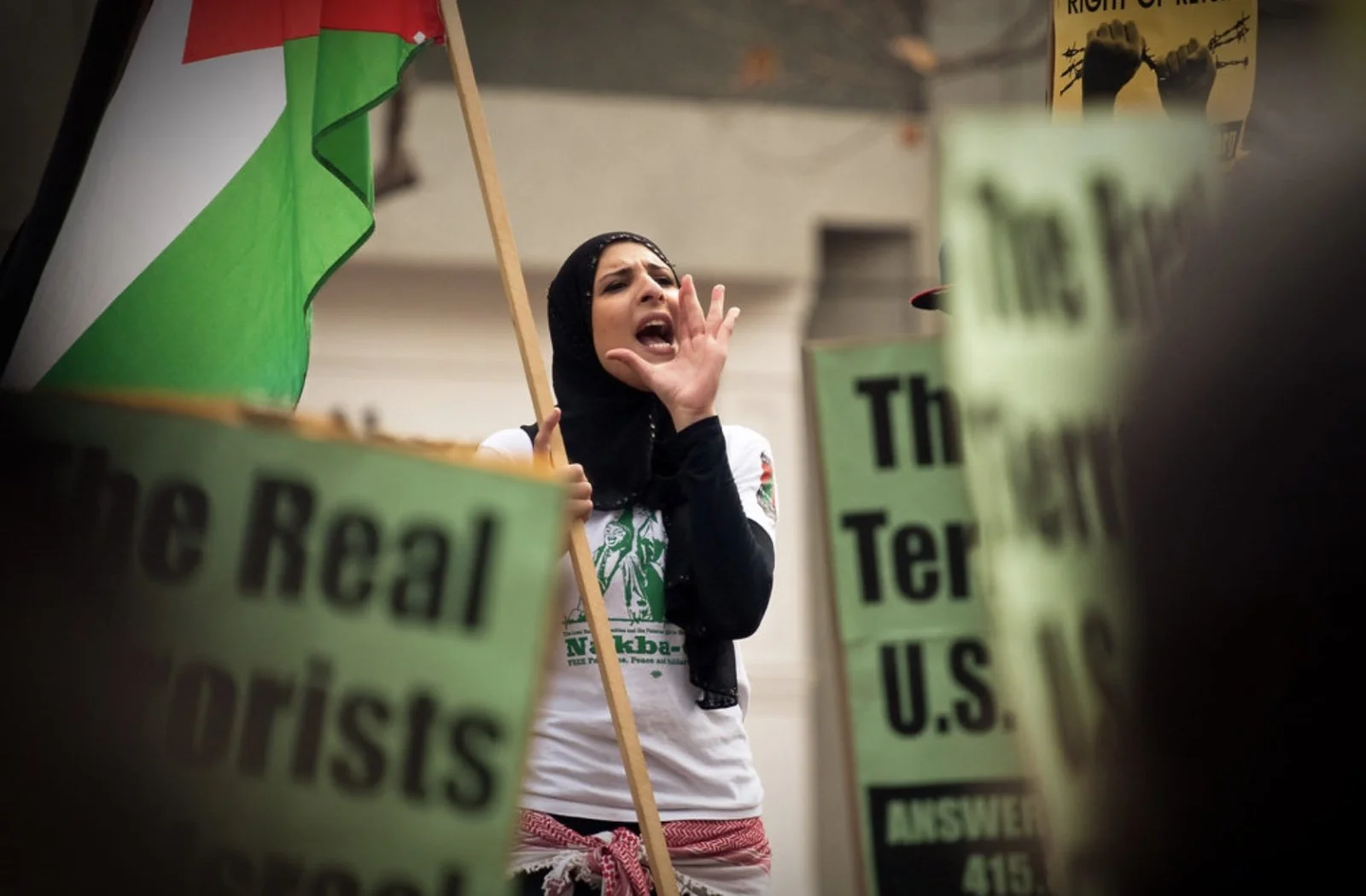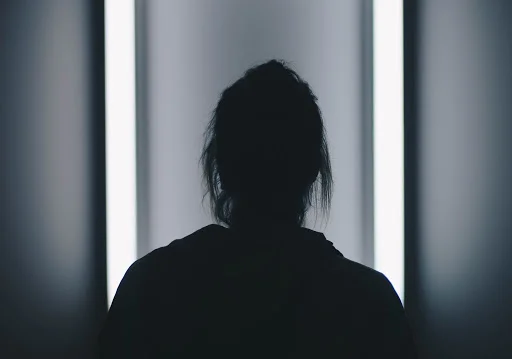This article undertakes a comprehensive examination of the intricate intersections between gender, sexuality, and settler colonialism within the context of Palestine-Israel dynamics. Drawing upon insights from Palestinian studies and queer theory, it delves into the multifaceted manifestations of pinkwashing and homonationalism, critically analysing their implications. Through in-depth exploration and nuanced discourse, it navigates the complexities of Palestinian queer activism, resistance strategies, and the challenges faced in post-Oslo Palestine. Ultimately, it envisions a future where intersectional struggles for liberation and social justice prevail.
BY Selina Wijesooriya
Introduction
In the volatile geopolitics of the Middle East and North Africa, where historical tensions and contemporary conflicts converge, the intricate interplay between gender, sexuality, and settler colonialism unfolds as a compelling narrative that demands careful examination. Against a backdrop of entrenched power dynamics and ongoing struggles for self-determination, understanding the complexities of this nexus within the context of Palestine-Israel dynamics becomes imperative.[[1]] Key terms such as "pinkwashing" and "homonationalism" permeate the discourse, drawing attention to strategic practices employed by Israel to project a progressive LGBTQ+ rights image while diverting focus from ongoing colonisation. [[2]] This article embarks on a journey to unravel the multifaceted layers of oppression, resistance, and resilience that characterise this complex terrain.[[3]] Critical engagement with scholarly literature and the adoption of an interdisciplinary lens seeks to illuminate the nuances, challenges, and potential pathways towards a more just and equitable future for all individuals affected by these intersecting forces.[[4]]
Israeli Settler Colonialism
At the heart of the Palestine-Israel conflict lies the enduring legacy of settler colonialism, a system built upon the dispossession and marginalisation of indigenous Palestinians.[[5]] This entrenched power structure perpetuates violence and oppression, shaping not only the geopolitical landscape but also individual and collective identities. The normalization of violence within Israeli discourse, particularly exemplified in the aftermath of the 2014 assault on Gaza, reveals the insidious nature of colonial rhetoric.[[6]]
An increasing number of sexualized, racist, Orientalist, and Islamophobic tropes in the Israeli public discourse has followed the fifty-one-day military assault on Gaza in the summer of 2014.[[7]] Examples include images portraying Gaza as a half-naked woman in a niqab with a caption calling on Israeli Prime Minister Netanyahu to rape her and T-shirts received by Israeli soldiers depicting a pregnant Palestinian woman wearing a niqab in a bullseye, with a text saying, "1 shot, 2 kills," implying the killing of both the Palestinian woman and her unborn child.[[8]]
Despite such overt displays of violence, Israel has cultivated a self-proclaimed progressive image, particularly through initiatives like the inclusion of LGBTQ+ individuals in the military. These seemingly inclusive policies, along with Israel's promotion of military feminism, have led to its military being perceived as one of the most liberal globally, reflective of Israeli society.[[9]] However, this perception obscures the reality of sexual torture and violence against Palestinians, which is not uncommon. Reports and testimonies by Palestinian detainees of forced nudity, verbal sexual abuse, and rape challenge the notion of Israel's humanitarian warfare, revealing a discrepancy between its public image and its actions.
Through the dehumanisation of Palestinians, Israeli authorities seek to justify their expansionist policies and maintain control over occupied territories. Moreover, Israel's self-proclaimed progressive image, touted through initiatives like the inclusion of LGBTQ+ individuals in the military, serves as a smokescreen for ongoing human rights violations.[[10]] The phenomenon of pinkwashing, whereby Israel showcases its LGBTQ+ rights record to deflect attention from its colonial practices, highlights the strategic deployment of identity politics in perpetuating oppression.[[11]] By presenting itself as a beacon of tolerance and liberalism, Israel seeks to whitewash its history of violence and legitimise its occupation of Palestinian lands. However, beneath this veneer of inclusivity lies a stark reality of systemic discrimination and violence against Palestinians, particularly LGBTQ+ individuals who face intersecting forms of oppression.[[12]]
Queer Perspectives in Palestine
In the face of Israel's homonationalist narrative, Palestinian queer activism emerges as a potent force challenging the dominant discourse.[[13]] By reclaiming their narratives and asserting their agency, queer Palestinians resist both internalised and external forms of oppression.[[14]] Israeli critics accuse the country of employing ‘pinkwashing’ - using its progressive stance on LGBTQ+ rights to distract from its continued occupation of Palestinian territories. This approach sparks resentment among Palestinian activists who see it as an attempt to mask oppressive policies. By framing the conflict as one between a liberal, LGBTQ+-friendly Israel and a conservative, homophobic Palestinian society, Israel seeks to legitimise its actions in Palestine[[15]] To counter this narrative, organisations like Palestinian Queers for Boycott, Divestment, and Sanctions (PQBDS) provide a platform for dissent, urging global solidarity in the struggle against colonial violence.[[16]]
However, it is essential to recognize that queer liberation cannot be divorced from broader struggles for justice and self-determination. While pinkwashing may serve as a convenient distraction, the root of Palestinian oppression lies in the ongoing occupation and colonization.[[17]] Critics argue that focusing solely on LGBTQ+ rights violations risks overshadowing broader human rights abuses against Palestinians under occupation. It is crucial to address Israel's general human rights violations and the systemic oppression of Palestinians, ensuring that the struggle for queer liberation remains intertwined with broader movements for justice and self-determination.[[18]] By centring the voices of queer Palestinians and amplifying their experiences, activists aim to dismantle not only homonationalist narratives but also the structures of power that sustain them.[[19]] Through intersectional solidarity and collective action, they envision a future where all marginalised communities can thrive free from oppression and exploitation.[[20]]
Critiques and Challenges
While the analysis of pinkwashing and homonationalism offers valuable insights, it is not without its critiques and challenges.[[21]] One of the central critiques revolves around the question of whether these frameworks adequately capture the lived experiences of queer Palestinians.[[22]] Some argue that by focusing solely on the political instrumentalisation of LGBTQ+ rights, there is a risk of overlooking the broader context of oppression faced by Palestinians under occupation.[[23]] Furthermore, there is a concern that Western-centric frameworks may inadvertently replicate colonial power dynamics, reinforcing hierarchies of knowledge and marginalising indigenous voices.[[24]]
Additionally, there is a need to interrogate the limitations of mainstream queer activism, which often prioritises visibility and representation at the expense of addressing structural injustices.[[25]] The conventional emphasis on individual rights and identity politics may obscure the collective struggles of marginalised communities, including queer Palestinians.[[26]] Therefore, adopting an intersectional approach that acknowledges the interlocking systems of oppression and centres on the voices of those most affected by colonial violence is imperative.
Beyond Homonationalism
Amidst these critiques and challenges, there is a growing recognition of the transformative potential of intersectional solidarity and decolonial activism.[[27]] By forging alliances across movements and communities, activists seek to challenge the hegemony of colonial power structures and envision alternative futures rooted in justice and liberation.[[28]] The interdisciplinary engagement between Palestinian studies and queer theory offers fertile ground for generating innovative insights and fostering critical dialogue.[[29]]
Through collaborative efforts, scholars and activists strive to amplify marginalised voices, challenge normative narratives, and reimagine resistance strategies.[[30]] This collaborative venture holds promise for advancing social justice agendas and envisioning a more equitable and liberated future within the Palestinian context.[[31]] By centring the experiences of queer Palestinians and foregrounding their struggles within broader anti-colonial movements, we can work towards dismantling systems of oppression and building inclusive societies based on principles of justice and equality.
Conclusion
To conclude, this article has undertaken a comprehensive exploration of the intricate intersections between gender, sexuality, and settler colonialism in the Palestine-Israel context. By critically analysing pinkwashing, homonationalism, and queer resistance, it illuminates the challenges of navigating power dynamics. By centring queer Palestinians' experiences and amplifying their struggles, it challenges prevailing narratives and envisions a more just and equitable future.
Despite the myriad challenges and critiques, there remains a sense of optimism rooted in the resilience and resistance of marginalised communities.[[32]] The ongoing struggle against settler colonialism and oppression is imbued with the spirit of intersectional solidarity and collective action.[[33]] As scholars and activists continue to engage in interdisciplinary dialogue and collaborative praxis, there is hope for transformative change.
Moving forward, it is imperative to centre decolonial perspectives and prioritise the voices of those most affected by colonial violence. By foregrounding the experiences of queer Palestinians and integrating their struggles into broader anti-colonial movements, we can work towards dismantling systems of oppression and building inclusive societies based on principles of justice and equality.[[34]] In this endeavour, solidarity across movements and communities will be key, as we strive to create a world where all individuals can thrive free from oppression and discrimination.
References
Abdulhadi, R. (2019). Israeli Settler Colonialism in Context: Celebrating (Palestinian) Death and Normalizing Gender and Sexual Violence. Feminist Studies, [online] 45(2), pp.541–573. Available at: https://muse.jhu.edu/article/829471.
Alqaisiya, W. (2018). Decolonial Queering: The Politics of Being Queer in Palestine. Journal of Palestine Studies, [online] 47(3 (187)), pp.29–44. Available at: https://www.jstor.org/stable/26502214 [Accessed 10 Mar. 2024].
Jad, I. (2010). The conundrums of post-Oslo Palestine: Gendering Palestinian citizenship. Feminist Theory, 11(2), pp.149–169. doi:https://doi.org/10.1177/1464700110366809.
Medien, K. (2021). Israeli settler colonialism, ‘humanitarian warfare,’ and sexual violence in Palestine. International Feminist Journal of Politics, 23(5), pp.1–22. doi:https://doi.org/10.1080/14616742.2021.1882323.
Morgensen, S.L. (2012). Queer Settler Colonialism in Canada and Israel: Articulating Two-Spirit and Palestinian Queer Critiques. Settler Colonial Studies, 2(2), pp.167–190. doi:https://doi.org/10.1080/2201473x.2012.10648848.
Naber, N., Atshan, S., Awad, N., Mikdashi, M., Merabet, S., Abusalim, D. and Elia, N. (2018). On Palestinian Studies and Queer Theory. Journal of Palestine Studies, [online] 47(3 (187)), pp.62–71. Available at: https://www.jstor.org/stable/26502216 [Accessed 10 Mar. 2024].
Puar, J. and Mikdashi, M. (2012). Pinkwatching And Pinkwashing: Interpenetration and its Discontents. [online] Jadaliyya - جدلية. Available at: https://www.jadaliyya.com/Details/26818/Pinkwatching-And-Pinkwashing-Interpenetration-and-its-Discontents.
Ritchie, J. (2014). Pinkwashing, Homonationalism, and Israel-Palestine: The Conceits of Queer Theory and the Politics of the Ordinary. Antipode, 47(3), pp.616–634. doi:https://doi.org/10.1111/anti.12100.
Schotten, C.H. (2018). To Exist Is to Resist: Palestine and the Question of Queer Theory. Journal of Palestine Studies, [online] 47(3 (187)), pp.13–28. Available at: https://www.jstor.org/stable/26502213?seq=1 [Accessed 10 Mar. 2024].
Stelder, M. (2018). Other Scenes of Speaking: Listening to Palestinian Anticolonial-Queer Critique. Journal of Palestine Studies, [online] 47(3 (187)), pp.45–61. Available at: https://www.jstor.org/stable/26502215.













